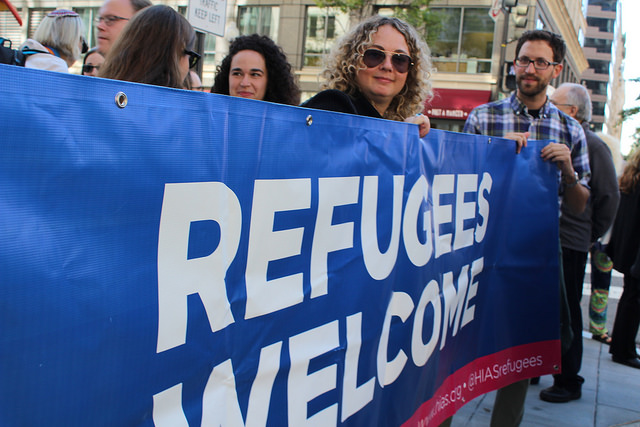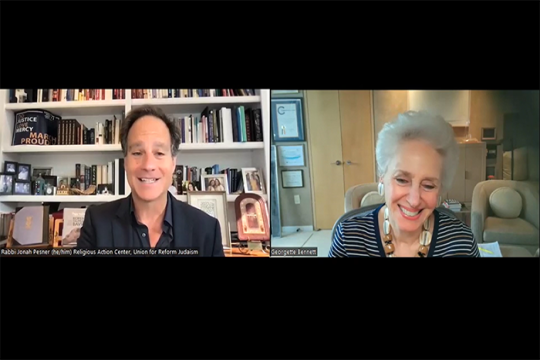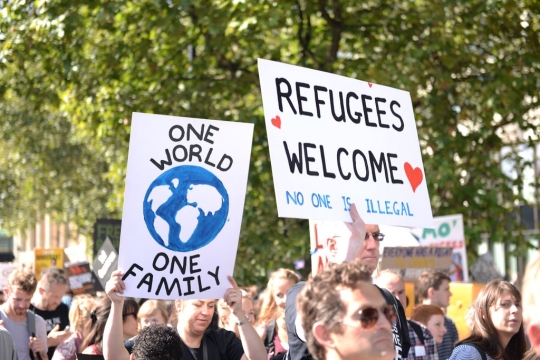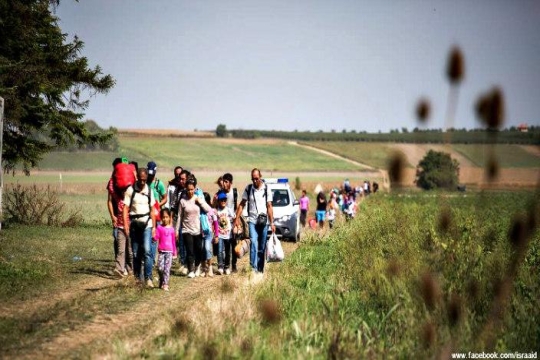
On January 27, 2017 the Trump administration signed an executive order barring entry to all Syrian refugees to the United States and suspending the U.S. refugee program for 120 days, the first step in a year charged with discriminatory policies that restrict the rights of immigrants and refugees, especially Muslims.
This Saturday marks a year since this ban was introduced, the first in a series of three discriminatory travel bans issued over the course of the year targeting the rights of people from Muslim-majority countries to enter the U.S. As Jews, we are bound to our Muslim neighbors and friends and we must stand with oppressed communities in our midst to demand that our government grants equal and fair protections to all who dwell on this earth, and mercy to those who are the most vulnerable.
On September 24, 2017, President Trump issued a new executive order restricting travel to the U.S. from eight countries: Libya, Yemen, Syria, Somalia, Iran, Chad, Venezuela, and North Korea. This was the third ban coming from this White House that placed heavy restrictions mainly on predominantly Muslim-majority countries. This executive order not only defies the United States' historical legacy as a land of refuge, but it also targets Muslim-majority countries, reneging on our country’s founding principle of religious freedom and closing our doors to some of the world’s most vulnerable people, including those from Syria and other war-torn countries.
Since January 2017, the Trump administration has taken authoritative steps towards closing America’s borders to immigrants and refugees. On September 27, 2017 the administration announced the reduction in the number of refugees to be admitted into the United States in fiscal year 2018 to 45,000 from the previous cap of 110,000 people the year prior. This number is the lowest ever set by the president since the Refugee Act of 1980 obligated the president to make this determination each year.
As Jews, we know all too well the price paid when good people do not act to protect the victims of discrimination, persecution and crimes against humanity. To watch a global refugee crisis unfold in front of our eyes would be contrary to the Jewish understanding that we “may not stand idly by when your neighbor's blood is being shed" (Leviticus 19:16). The number of displaced people around the world has reached 65.6 million, nearly tripling the 22.5 million people who are refugees and unlikely able to ever return to their home country. To close our borders now is an abdication of moral responsibility.
We must demand that our governments enact fair policies that protect those who are the most vulnerable without discrimination. Here are three things you can do to advocate for fair, nondiscriminatory policies:
- Call you members of Congress at (202) 224-3121 and urge them to pressure the Trump administration to immediately begin admitting refugees to the United States and release information about the new refugee vetting processes.
- Urge Congress to support Temporary Protected Status (TPS) visa holders, and to urge the Department of Homeland Security redesignate and extend TPS for Syrians. This decision will be announced by January 30, 2018 and will impact 5,800 Syrians living in the United States.
As a Jewish community, we must commit to assisting those seeking refuge on our shores. We must live out our Jewish values and express our American identity by exercising compassion and unceasingly seeking justice. We cannot and we will not stop showing up to support Muslim communities. It is imperative that we do so.
Related Posts

World Refugee Day 2023

World Refugee Day 2022


